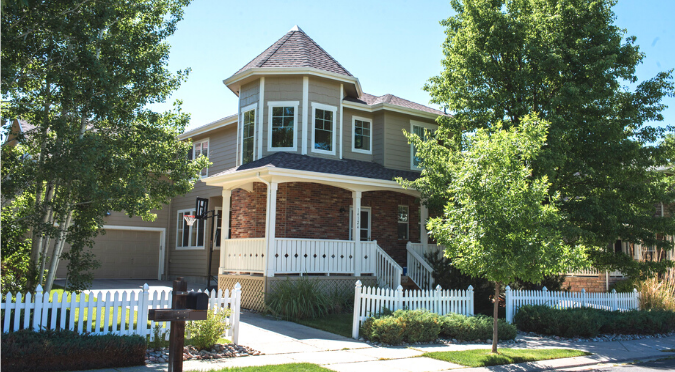The decision to refinance your mortgage should be taken with careful consideration. If you’re thinking about making the shift, be sure to work with an experienced and knowledgeable professional who will help ensure a refinance is truly in your best interest.
There are two types of refinances: rate-and-term and cash out. Here, we look at the differences between the two types and how to figure out if a rate term refinance is in your best interest. Plus, we explain the current rate environment and why all of these considerations are relevant right now.
Rate-and-Term versus Cash Out Refinance
Rate-and-Term Refinance
A rate-and-term refinance means replacing your current mortgage with a new one that has more beneficial terms. For example, these advantageous terms could be a lower interest rate, going from an adjustable rate mortgage (ARM) to a fixed rate or even a shorter term (for example, going from a 30-year mortgage to a 15-year). A rate-and-term refinance can include the payoff of a second mortgage IF the second mortgage was used to purchase the home, also called a purchase money second. This loan amount is limited to the payoff of the current mortgage and closing costs. Rate-and-term refinances generally have more favorable interest rates and allow for higher loan-to-values than cash out refinances.
Cash Out Refinance
Another option is a cash out refinance. A cash out refinance also replaces a current mortgage with a new one, but it’s coupled with a higher loan amount that allows for cash to be pulled out from the equity in the home. This additional money can be used for home improvement, debt consolidation, college tuition or other borrower needs. Since loan-to-value increases with a cash out refinance, it is considered a riskier loan. For this reason, interest rates are generally higher, and there are stricter qualifying requirements than rate-and-term refinances.
Is a Rate-and-Term Refinance in Your Best Interest?
Obtaining a mortgage loan costs money – fees to the lender, appraisal fees, Title Company costs and so on. These fees can add up to thousands of dollars and increase your mortgage balance. A refinance should only be done if it is truly in your best interest.
A cash out refinance’s main benefit is the ability to use the equity in your home for another purpose. When this purpose is debt consolidation, a home equity line of credit or credit card might be a more beneficial option, depending on the amount. On the other hand, interest rates are often more favorable with a mortgage than they are with a second mortgage or credit card.
It’s also important to evaluate the cost of refinancing versus the realized savings. For a rate-and-term refinance, a small decrease in interest rate may not be worth the cost. For example: If your current mortgage is $300,000 at 5% interest, the principal and interest payment is $1,610 per month. If you refinance to a new mortgage of $300,000 at 4.75%, your new monthly payment is $1,565/month. That’s a yearly savings of $540. The cost of refinancing can be $3,000 or more, which means it will take over five years to realize the benefit of refinancing.
When doing this calculation, it’s important to compare apples to apples. If your current mortgage is a 30 year fixed, but you’ve been paying on it for 5 years, a new 30 year fixed extends the payoff term by 5 years – a longer period with interest payments.
An instance that almost always benefits the borrower is removing mortgage insurance, or MI. If you have an FHA mortgage currently and your financial situation has improved, a rate-and-term conventional refinance might reduce the MI amount or remove it altogether. If you have a conventional mortgage with MI currently and the equity in your home has increased sufficiently, a rate-and-term refinance will remove the MI requirement.
The Relevance of the Current Rate Environment

Above: US 30 Year Mortgage Rate Chart (source: ycharts.com)
Rates remain close to their all-time lows and are remarkably similar to where they stood a year ago. If you obtained your current loan before 2020 it’s worth exploring whether a refinance makes sense.
If you are considering your refinancing options and want an expert opinion, please contact our mortgage team. We are here to help. You may also try our mortgage refinance calculator or sign up for a complimentary seminar. Elevations is an Equal Housing Opportunity Lender.

